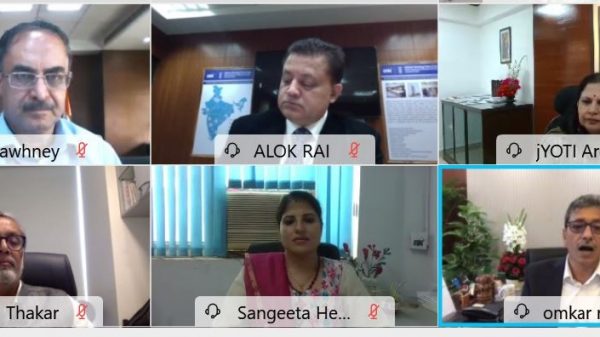Twitter Inc. is investing its resources towards providing users greater control over their data and the algorithms that govern their timelines. In a written testimony to the United States’ House of Representatives, the company’s chief executive Jack Dorsey said that it is building new tools to counter misinformation; it will also enhance transparency around content moderation, advertising and data protection policies.
In his testimony, Dorsey said that Twitter’s policies are centered around three fundamental rights: freedom of expression, safety, and privacy. But since these rights can conflict with each other, at different times, the company’s policies need to find a balance between these rights and should be adaptable to changes in behavior and evolving circumstances, he said.
“Quite simply, a trust deficit has been building over the last several years, and it has created uncertainty — here in the United States and globally. That deficit does not just impact the companies sitting at the table today but exists across the information ecosystem and, indeed, across many of our institutions”—Jack Dorsey, CEO, Twitter Inc.
To address this trust deficit, Dorsey said that the company needs to be more transparent, embrace procedural fairness and choice, and protect privacy. On Thursday, Dorsey will appear before Houses of Representatives’ Committee on Disinformation Nation: Social Media’s Role in Promoting Extremism and Misinformation. Facebook’s Mark Zuckerberg and Alphabet’s Sundar Pichai will also testify before the Committee on Thursday.
Key Takeaways: Dorsey’s written testimony
- Algorithmic Choice: Dorsey said that people should have meaningful control over the algorithms that affect them and that the company recognises that it needs to do more to “provide algorithmic transparency, fair machine learning, and controls that empower people.” Twitter’s machine learning team is developing a roadmap to present its current and future algorithmic models to the public, in the interest of transparency and fairness, he said.
- Tools to address misinformation: Twitter has built two new tools, Birdwatch and Bluesky, to counter harmful misinformation, Dorsey said. “These standards will support innovation, making it easier for startups to address issues like abuse and hate speech at a lower cost. Since these standards will be open and transparent, our hope is that they will contribute to greater trust on the part of the individuals who use our service,” he said.
- Birdwatch, launched in January this year, is a community-based approach to counter misinformation. Twitter expects users to provide real-time feedback against content on the platform, he said.
- Bluesky is an “independent team of open source architects, engineers, and designers, to develop open and decentralized standards for social media,” Dorsey said. This initiative will help Twitter and other companies to create and access open algorithms that provides users greater choice and transparency, he said.
- Privacy: Privacy is a fundamental human right, Dorsey said. Twitter is “constantly working to improve the controls people have to manage their personal data” and has created a hub of information about its privacy and data protection work, he said. “We believe that individuals should understand the personal data that is shared with companies and have the tools to help them control their information,” Dorsey added.
- Policy responses to misinformation: Twitter has been combating misinformation surrounding the COVID-19 vaccine through a specific policy and an information hub, Dorsey’s testimony said. With regards to election misinformation, the company has policies in place related to civic integrity and platform manipulation. It also has instituted policies banning advertisements by state-controlled media and political advertising, he said. Twitter is conducting a review of the 2020 elections in the United States, the findings of which will be shared with the committee, Dorsey said. In a preliminary post-election analysis, the company said it had labelled 300,000 tweets under its civic integrity policy for content that was disputed and potentially misleading and had begun flagging misleading information regarding the election’s results through pre-bunk prompts which were seen 389 million times by users.
- Transparency measures: Dorsey said that Twitter has been making its enforcement measures public, without revealing private details of individuals, against content that has violated their rules. This is through a combination of machine learning and human reviews, he said. The company will enhance its transparency measures around its decisions and how they develop their content moderation policies, Dorsey said. He said that in recent times world leaders have been asking more questions on how Twitter addresses policy violations, as a result of which the company is re-examining its approach to world leaders and is soliciting feedback from the public, through a global survey.
- Procedural fairness: Dorsey said that Twitter will strive to provide its users with a clear and easy way to appeal any enforcement decisions the company’s system or human teams make against particular content. “We believe that all companies should be required to provide those who use their service with straightforward processes to appeal decisions that impact them,” he said.
Also Read
- MEITY says it has ‘no records’ on minutes of Twitter meeting it issued press release on
- Twitter sets out policy to ban people repeatedly spreading vaccine disinformation
- Here are 62 accounts and tweets Twitter withheld in response to MEITY’s orders














